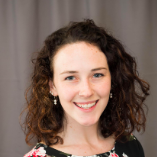Disentangling developmental and hormone responsive dysfunction of human hypothalamic circuits in Prader-Willi Syndrome
Funded Year: 2025The focus of our proposal is to unravel the complexities of developmental and hormone-responsive dysfunction within human hypothalamic circuits in Prader-Willi Syndrome using cutting edge human brain circuits within a petri dish using organoids.






